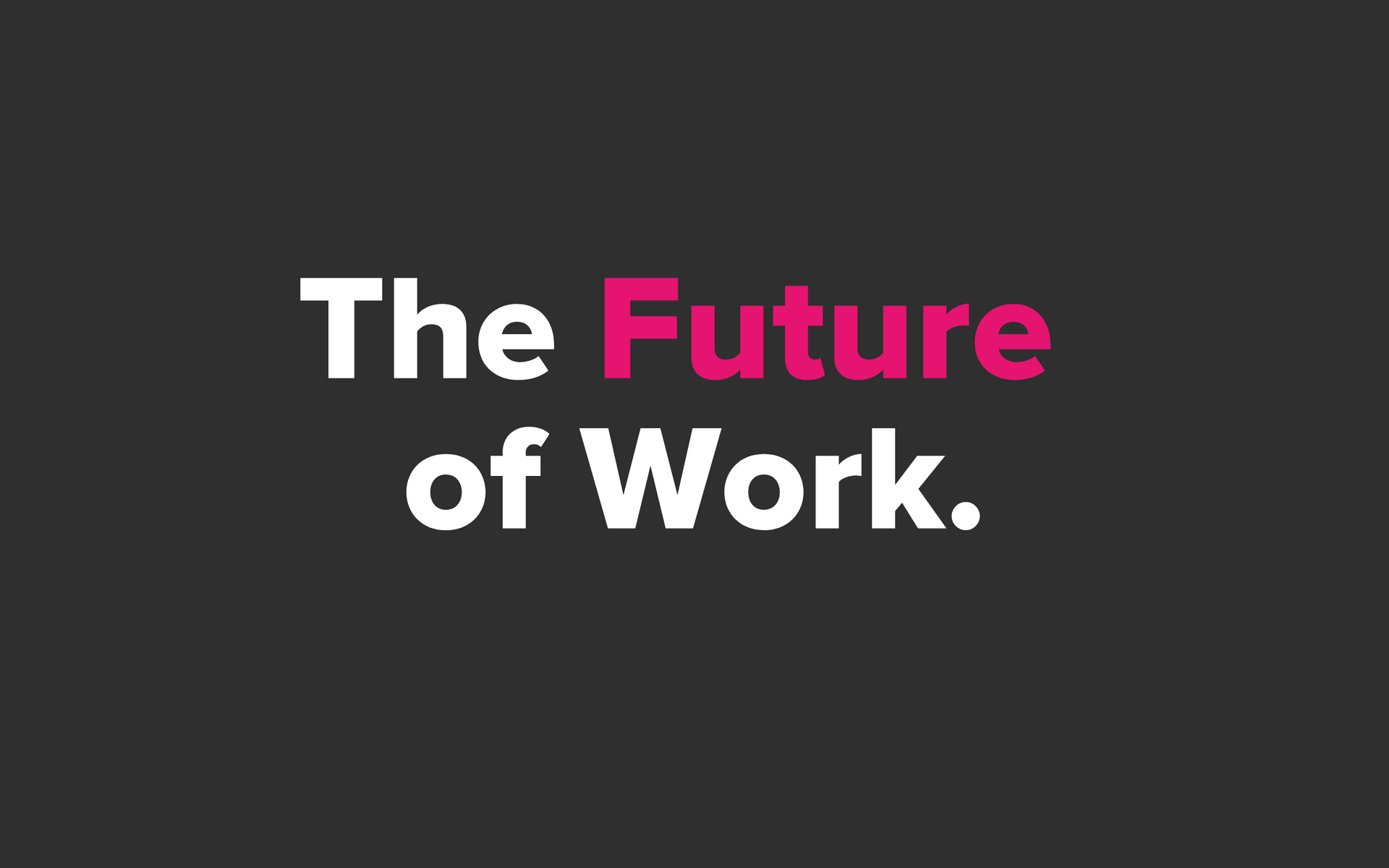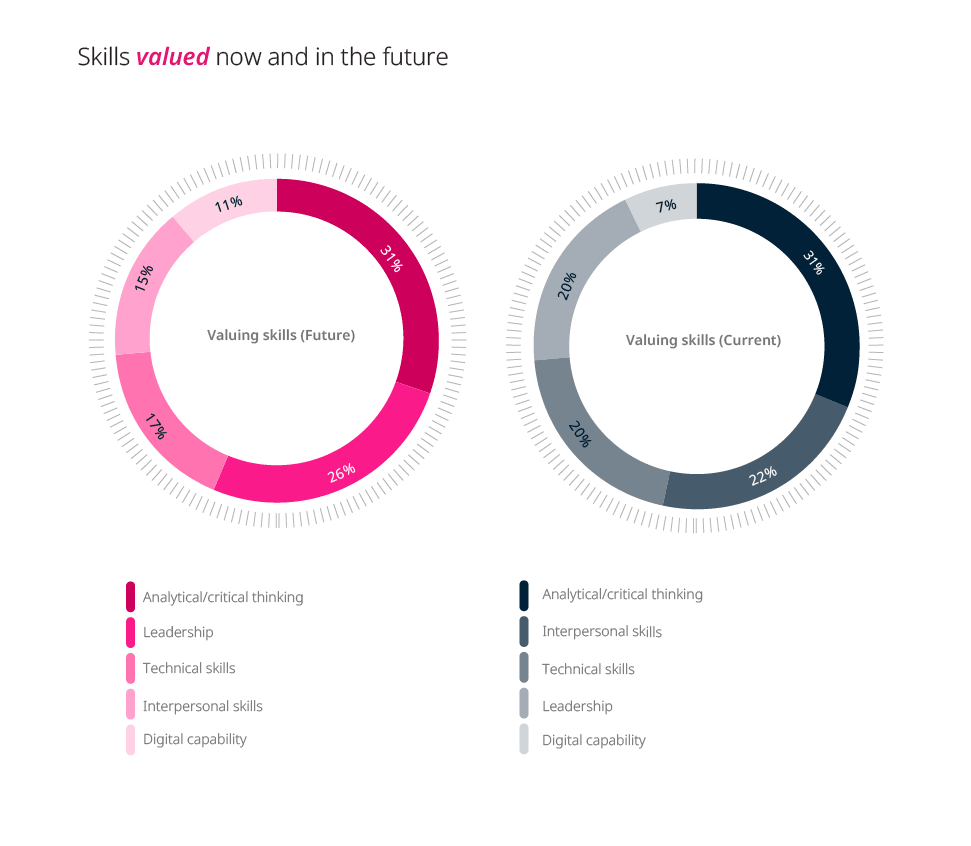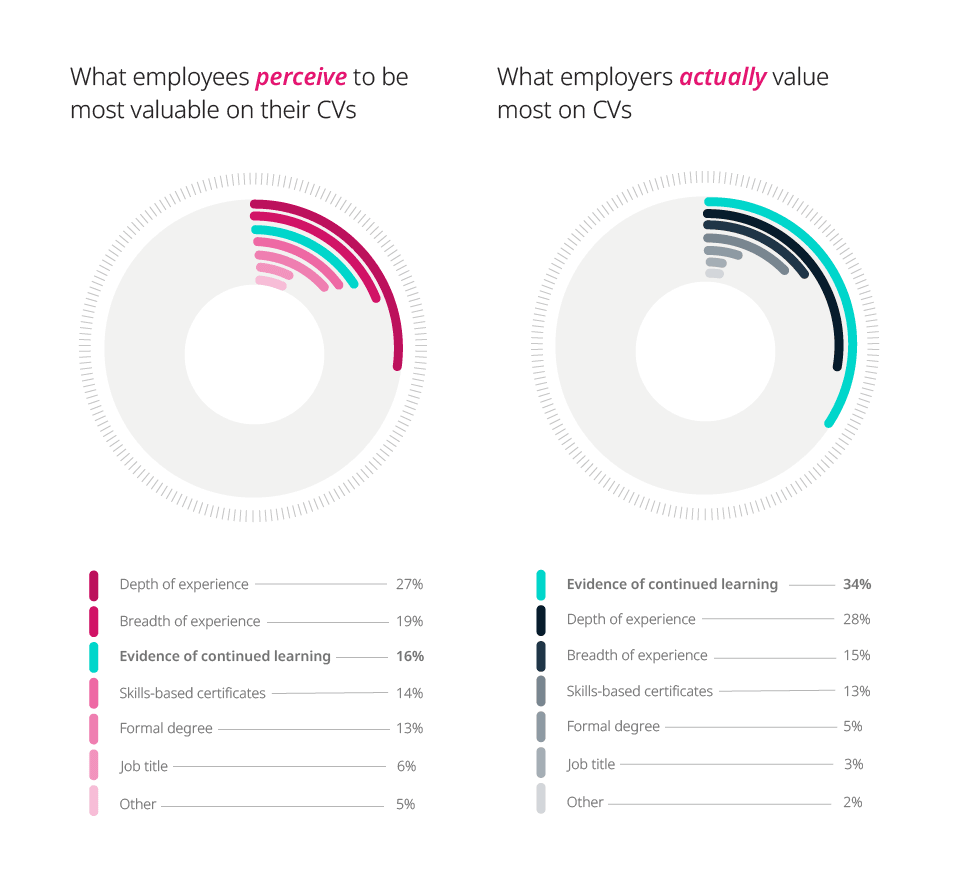Mission
Why We Surveyed Over 8,000 Business Leaders and Professionals About the Future of Work
Written by Ryan O'Mahoney on Sep 28, 2020
Related content: Digital Education

Today's workplace is evolving so fast that employees might sometimes feel like they are at the mercy of technology. They see the rate of change and they might believe they have no control over their careers. But they do have control; they are the masters of their professional future. They need only develop the right skills with the right educational partners.
At GetSmarter, a brand of 2U, Inc., we design short courses that help learners develop the skills that are most relevant and responsive to the future of work. And we partner with world-class universities to deliver those courses. But how do we know what the right skills are? Well, we went out and asked the individuals for whom the future of work is so important: the employees and employers, the business leaders, the industry professionals who compose the 21st-century workforce.
Learners who enroll in our short courses are at the forefront of the future of work. They are C-suite executives, learning and development managers, people managers, and individual contributors with a front row seat to how the workplace is changing. We turned to them to get a nuanced understanding of what’s shaping the future of work and how humans will need to prepare.
Today, we released the result of their collective feedback: our first report on the future of work. For learners and employees, the report provides clear insights about the key drivers of the future of work and how they will need to adapt their skills base in order to remain relevant and competitive in the ever-changing environment. For our university partners, the report helps them navigate an education industry that will need to adapt as careers become less linear and alternative credentials become more important and more valued by employers.
The Present of the Future
The future of work is a bit of a misnomer. It is not occurring in the future. It is already here. It is now. And what’s more, it has been accelerated by the effects of COVID-19.
For our Future of Work Is Here report, we surveyed our global network of learners—those who had completed one or more short courses, current students, and folks who had expressed interest in taking a course—and asked them directly how they were experiencing change in the workplace. The response we received was extraordinary—more than 8,000 business leaders and industry professionals worldwide, from working professionals at all levels.
We now have very strong, very real quantitative and qualitative data thanks to our ace research team led by Ann-Mari Höfinger, Karina Bean, and Steve van der Westhuizen. This research offers us invaluable information about why people are taking short courses and what is motivating them to continue their education—in essence, what is driving their behavior. We gained a solid understanding of who in the business is aware of workplace changes, how professionals at different levels are experiencing the changes and at what pace, and what they think is driving the changes.
With this plethora of data, we are in a unique position to share valuable insights with our partners, students, and employers.
The report helps learners and employees understand a key point about technology and the future of work. While technology is a powerful driving force, the largest skills gaps are human skills: interpersonal and problem-solving skills, leadership, empathy, and analytical and critical thinking. If and when automation occurs, it will be to fulfill menial tasks. Human skills, on the other hand, will be necessary for organizations and employees to be more creative and innovative. What this should signal for today’s learner and employee is an urgency to develop these human skills now. Short courses that focus on these skills are critical for this career development.

The report also points to a clear disconnect between employers and people actively looking for jobs about what’s important to include on a CV. Job searchers believe employers want to see depth and breadth of experience as well as a formal degree. This belief stands in sharp contrast to what employers state they actually want: evidence that job candidates continue to upskill themselves. Short courses are increasingly seen as valuable ways to show a continued passion for learning and to help professionals stay relevant in the workplace. With this knowledge, professionals can pursue the right continuous learning opportunities that will enhance their skill set and make them feel more confident about navigating a new career landscape.

Showing Learners We Care
These are just two of the many findings we’ve gathered, but the point here is that 2U and our partners care deeply about learners, and this report helps us better address their needs. Insights from the report help the individual businessperson know what they need to do to prepare for the future of work. And the insights help our partners know what they need to do to help that individual learn relevant skills. The more we all know about short course learners, the better we can respond to the future of work.
At 2U, we’ve never been about robotically mass-producing a cold educational object. We work with world-class universities to thoughtfully build dynamic learning experiences. We engage in a very intentional design process that leads to real learner outcomes. This report will only help us improve that process by enabling us to use our data to serve more students, which will in turn help people around the world improve their lives.
To learn more from Ryan O’Mahoney, register for the ASU GSV panel "Who will Solve the Skills Gap: Employers, Colleges or Tech Giants?" taking place Wednesday, September 30, 4:30–5:15pm ET.
To hear more from Ryan, Ann-Mari Höfinger, and Karina Bean about the Future of Work report, register for the ASU GSV content session “The Future of Work: New Data on How Professionals and Businesses Are Adapting to a Changing Landscape” taking place on Thursday, October 1, 3:00–3:45pm ET.
Latest.
Learn more about us.
At 2U, we’re on a mission—to eliminate the back row in higher education and help universities thrive in the digital age. To learn more about who we are and what we do, follow the links below.